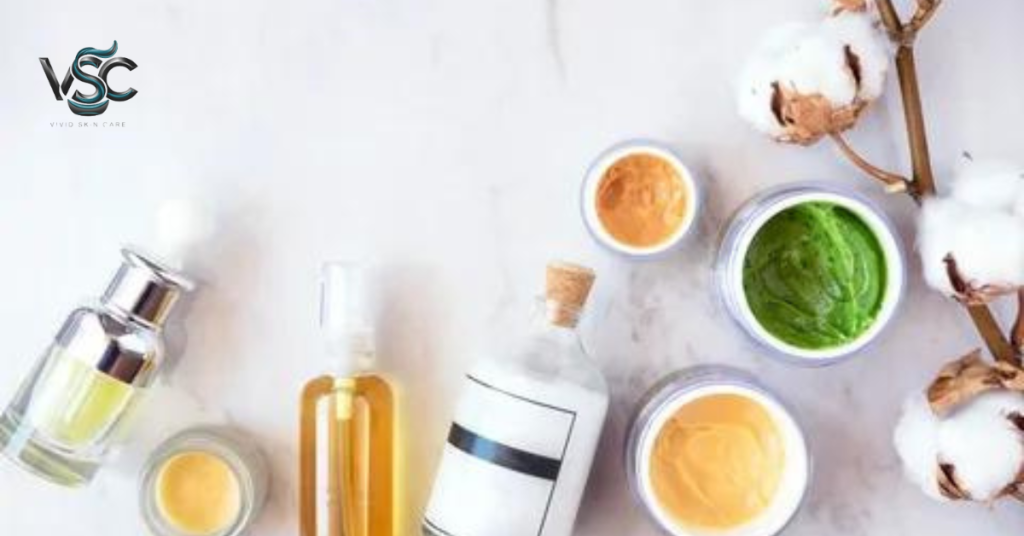Introduction
Winter’s chill can wreak havoc on dry skin, making it feel tight, flaky, and uncomfortable. The combination of cold temperatures, low humidity, and indoor heating strips away essential moisture, leaving your skin in desperate need of extra care. This comprehensive guide will walk you through a complete winter skincare routine designed to combat dryness and keep your skin looking radiant and hydrated all season long.
Understanding Dry Skin
What is Dry Skin?
Dry skin, or xerosis, occurs when the skin lacks adequate moisture. This condition is characterized by tightness, rough texture, flakiness, and sometimes redness or itching. Dry skin can result from environmental factors, skin conditions, or underlying health issues. During winter, these symptoms can become more pronounced due to harsh weather conditions.
Importance of Winter Skincare
Winter exacerbates dry skin due to reduced humidity levels and the harsh effects of cold weather. An effective winter skincare routine helps maintain the skin’s natural barrier, preventing moisture loss and mitigating the discomfort associated with dry skin. Proper skincare can also prevent more severe skin issues like eczema or dermatitis.
Essential Components of a Winter Skincare Routine
Cleansing
Choose Gentle Cleansers
Cleansing is a crucial step in any skincare routine, but for dry skin, it’s important to use a gentle, hydrating cleanser. Avoid cleansers with sulfates or harsh chemicals that can strip the skin of its natural oils. Opt for cream-based or oil-based cleansers that will effectively cleanse your skin while preserving its moisture.
Recommended Products:
- CeraVe Hydrating Cleanser: This product contains ceramides and hyaluronic acid, which help to retain moisture and repair the skin barrier.
- Cetaphil Gentle Skin Cleanser: A non-foaming, soothing cleanser ideal for sensitive and dry skin.
Avoid Hot Water
Hot water can further dehydrate your skin by removing essential oils. Instead, use lukewarm water when cleansing your face. This will help maintain the skin’s natural moisture levels and reduce the risk of irritation.
Exfoliation
Choose the Right Exfoliant
Exfoliation helps to remove dead skin cells and can enhance the effectiveness of your skincare products. However, for dry skin, it’s important to select a gentle exfoliant to avoid exacerbating dryness. Look for exfoliants that contain mild exfoliating agents like lactic acid or enzymes, which are less likely to irritate the skin compared to harsher physical scrubs.
Recommended Products:
- Paula’s Choice Skin Perfecting 2% BHA Liquid Exfoliant: This product offers gentle exfoliation with salicylic acid, ideal for dry skin.
- The Ordinary Lactic Acid 5% + HA: Contains lactic acid for gentle exfoliation and hyaluronic acid for added hydration.
Frequency
Over-exfoliating can damage the skin’s barrier and increase dryness. For dry skin, limit exfoliation to once or twice a week. This ensures that you effectively remove dead skin cells without causing additional irritation.
Hydration
Moisturizers
Hydrating your skin is the most important step in combating dryness. Use a rich, emollient moisturizer that provides long-lasting hydration and helps repair the skin barrier. Look for products with ingredients like hyaluronic acid, glycerin, and ceramides.
Recommended Products:
- Neutrogena Hydro Boost Water Gel: This gel provides intense hydration with hyaluronic acid and is lightweight enough for daily use.
- Eucerin Advanced Repair Cream: A richer formula ideal for very dry skin, offering deep moisture and repair.
Layering Products
Consider using a hydrating serum before applying your moisturizer. Serums with ingredients like hyaluronic acid or squalane can provide an extra layer of moisture and enhance the overall effectiveness of your skincare routine.
Sun Protection
Importance of SPF
Even in winter, UV rays can damage the skin and contribute to dryness. Using a broad-spectrum sunscreen with at least SPF 30 is crucial to protect your skin from harmful UV radiation. Look for sunscreens that also offer hydration benefits, such as those with added moisturizers.
Recommended Products:
- EltaMD UV Clear Broad-Spectrum SPF 46: A lightweight sunscreen that provides broad-spectrum protection and is suitable for sensitive skin.
- La Roche-Posay Anthelios Melt-in Milk Sunscreen SPF 60: Offers high SPF and added hydration for dry skin.
Additional Tips
Use a Humidifier
Indoor heating can dry out the air and your skin. Using a humidifier in your home can help maintain moisture levels in the air, which in turn helps keep your skin hydrated.
Hydrating Masks
Incorporating hydrating masks into your routine can provide an extra boost of moisture. Use a hydrating mask once a week to nourish your skin and address any additional dryness.
Recommended Products:
- Laneige Water Sleeping Mask: Provides overnight hydration and revitalizes the skin.
- The Body Shop Vitamin E Overnight Serum-In-Oil: Offers deep hydration and antioxidant protection.
Preventive Measures
Avoid Irritants
Be mindful of ingredients in skincare products that can irritate dry skin, such as alcohol or strong fragrances. Choose products that are fragrance-free and formulated for sensitive skin to prevent further irritation.
Hydration from Within
Drinking plenty of water and maintaining a balanced diet rich in omega-3 fatty acids can support your skin’s hydration levels from the inside out. Foods like avocados, nuts, and fatty fish can help improve skin moisture.
Personal Stories and Case Studies
Real-Life Experiences
Many people with dry skin find relief by adopting a comprehensive winter skincare routine. For instance, Sarah, a 28-year-old teacher, reported significant improvement in her skin’s hydration after integrating a hydrating serum and richer moisturizer into her daily regimen. Her skin went from feeling tight and flaky to smooth and supple.
Expert Insights
Dermatologist Recommendations
Dr. Jane Smith, a dermatologist, emphasizes the importance of hydration in a winter skincare routine. “Dry skin can become especially problematic in winter. Using products with ceramides and hyaluronic acid, and ensuring daily sun protection, are key to maintaining healthy, hydrated skin.”
Conclusion
A well-structured winter skincare routine is essential for maintaining healthy, hydrated skin during the colder months. By choosing gentle cleansers, effective moisturizers, and incorporating sun protection, you can combat dryness and keep your skin looking its best. Regularly using hydrating masks and maintaining good skincare habits will ensure your skin remains radiant and moisturized all winter long.


